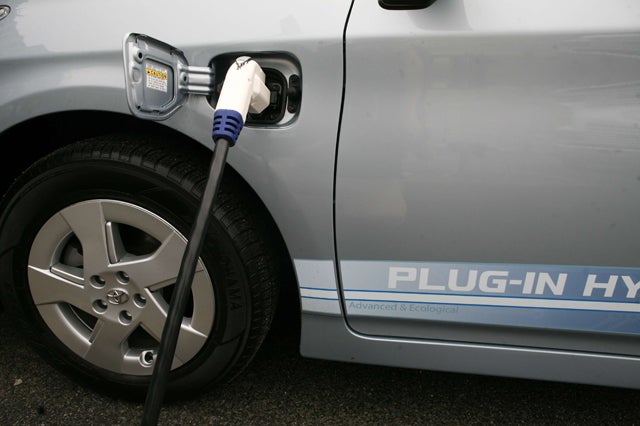Congressman Seeks Answers on Stimulus-Backed Company Ecotality
Lachlan Markay /
Congress is asking questions about a stimulus-backed electric vehicle company that received millions in taxpayer dollars even after the Securities and Exchange Commission opened an investigation into the company for insider trading.
Ecotality, which manufactures charging stations for electric vehicles, was hit with an SEC subpoena in October 2010, a development first reported by Scribe. It had already received nearly $90 million in Energy Department grants as part of the stimulus package. Even after the SEC investigation started, it received another $26 million.
The company was a poster child of the administration’s effort to get a million plugin hybrid electric vehicles on the road by 2015. President Obama lauded Ecotality specifically in his 2011 State of the Union Address, as did Energy Secretary Steven Chu.
But despite the administration’s accolades and the nearly $115 million in taxpayer support, Ecotality has struggled financially, and has only managed to produce less than 7,000 electric vehicle charging stations – less than half of the 15,000 for which it received taxpayer money.
These issues were all raised in a letter (embedded below) to Chu sent by Rep. Andy Harris (R-MD) on Tuesday. Harris, who chairs the House Energy and Environment Subcommittee on Science, Space, and Technology, requested:
…a detailed summary of the Ecotality project, including original project plan and performance metrics, deployment milestones and an update on the status of the project with respect to those metrics and milestones. Also, please provide a detailed timeline of the application and negotiation process for the original Ecotality grant and all records associated with Ecotality…between June 1 and September 30, 2009.
In the letter, Harris raised questions both about the DOE awards to Ecotality, and the larger viability of the administration’s electric vehicle push in the context of the company’s struggles.
The letter also cites other high-profile companies involved in electric vehicle manufacturing that have struggled financially after receiving federal support, including A123 systems, which cut its workforce by more than a third after receiving nearly $250 million in stimulus funding, and Fisker Karma, which “was pushed to market prematurely in order to meet DOE’s loan guarantee terms,” according to reports cited in the letter.
The problems inherent in the administration’s push for electric vehicles have also been highlighted by Heritage. “The economic reality is that PHEVs are not ready for prime time,” explained energy policy expert Nick Loris, “and the best indicator for when they will be is when the government stops using taxpayer dollars to subsidize their production and consumption.”
Here is the full text of Harris’s letter:

